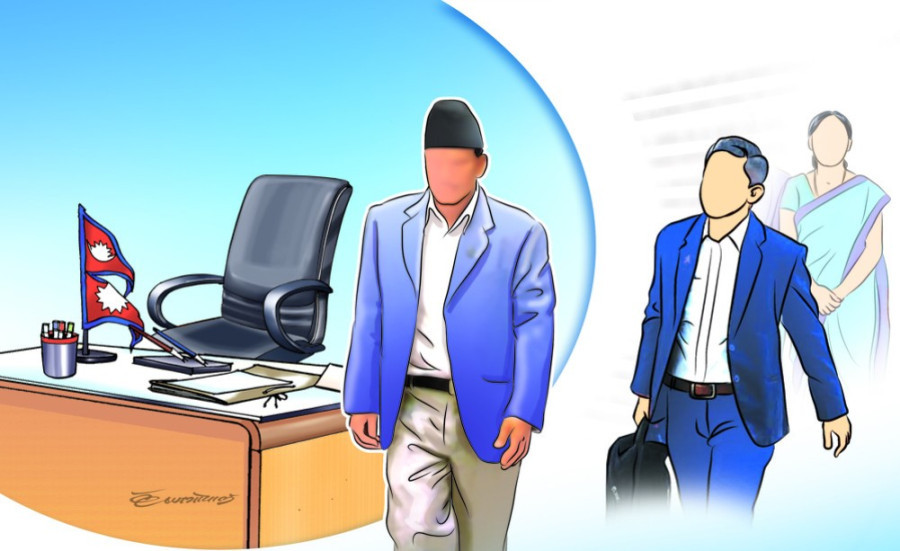National
UML firm against cooling-off period in civil service bill
Scores of amendments proposed to the bill that has now reached the National Assembly.
Binod Ghimire
The CPN-UML has stood against imposing restrictions on the civil servants so that they cannot take up constitutional or other government appointments immediately after their retirement or resignation.
Registering amendments to the Federal Civil Service Bill, the ruling party’s lawmakers in the National Assembly have proposed removing provisions relating to cooling-off period in the bill that bars such officials from accepting appointments for a specified period.
“We feel that the cooling-off period is unnecessary at this point,” Gopal Bhattarai, the UML’s chief whip in the National Assembly, told the Post.
Asked if it was done with the party’s consent, he said, “It is the decision of the lawmakers from our party. We will also discuss the matter once detailed House discussions start.”
Along with Bhattarai, party’s lawmakers Indira Devi Gautam, Rukmini Koirala, Sumitra BC, and Sonam Geljen Sherpa have registered amendment proposals to this effect.
The third largest party in the upper house wants termination of the cooling-off period—at a time a parliamentary committee under the House of Representative is probing alleged tampering with the provision.
Section 82(4) of the bill states that any employee who has resigned or retired must have completed at least two years before taking another government appointment.
However, alongside the committee’s decision, a sub-section 82 (5) has been incorporated into the bill that runs contrary to the earlier clause, allowing civil servants to take another government appointment within two years of their resignation or retirement.
The members of the State Affairs and Good Governance Committee including its chair Ram Hari Khatiwada claim the controversial provision was mysteriously included in the bill before it was presented at the lower house for endorsement.
The cooling-off provision was the most contentious issue for the House committee to settle. Initially, the UML was against introducing a cooling-off period. It then stood for a one-year period. However, it settled for the two-year period following cross-party negotiations.
Ignoring open lobbying from senior government officials, the Khatiwada-led committee endorsed the bill including two years of cooling-off period.
Officials at the Parliament Secretariat say three different kinds of amendments have been registered in the bill, by different parties. While the UML wants removal of the cooling-off period, the CPN (Maoist Centre) has proposed removing the “tempered sub-section” and increasing the duration to three years from two. The Maoist Centre is the largest party in the upper house. Nepali Congress lawmakers are for revising the “tempered part”.
“The bill has received 130 amendments from 46 lawmakers in several sections including the one related to the cooling-off period,” Ekram Giri, spokesperson for the secretariat, told the Post. The bill is likely to be sent to the Legislation Management Committee for the settlement of the amendments before being presented in the upper house for endorsement, according to Giri.
The legislation committee is unlikely to start detailed discussions, until the parliamentary panel completes its probe. Formed on July 7, the seven-member panel was given 21 days to complete the investigation from the day it commenced its work.
It comprises two lawmakers each from the Congress and the UML, and one each from the Maoist Centre, the Rastriya Swatantra Party, and the Rastriya Prajatantra Party.
The committee has been entrusted with four specific tasks—finding how the tampering occurred; its reasons; identifying the persons involved in the tempering; and recommending corrective measures.
The investigation will involve officials from the bill’s drafting process, including those from the Ministry of Federal Affairs and General Administration, the Ministry of Law, and the secretariat of the State Affairs Committee.




 21.12°C Kathmandu
21.12°C Kathmandu














